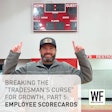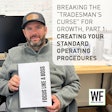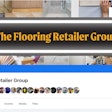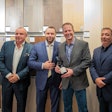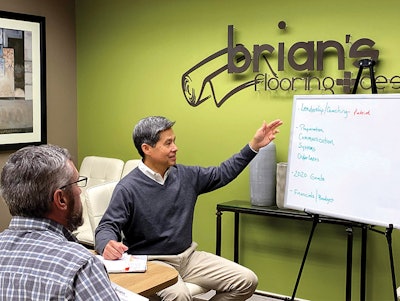
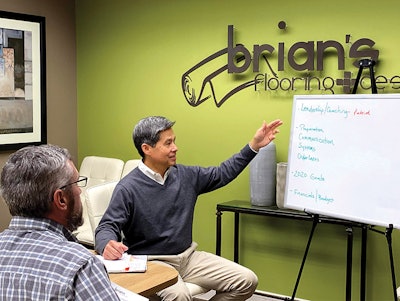 I meet one-on-one with employees for coaching sessions every two weeks.
I meet one-on-one with employees for coaching sessions every two weeks.
When you think about it, it's kind of unusual that a flooring company would hire someone like me, a life and leadership coach. I started working with Brian McCarver and Brian Hammonds of Brian's Flooring and Design about five years ago. I guess they saw the value in it, because two years later they wanted to offer life coaching to their employees, as well. Today, I coach Brian's employees to help them achieve whatever their goals are, personal or professional. What it comes down to is that we're really looking for well-rounded employees. Over the years, I've worked with Brian and Brian to make sure we're building a culture of excellence—one that retains and empowers employees. Here are some of the ways we do that.
Offering coaching sessions
My one-on-one coaching sessions are provided complimentary for all Brian's Flooring employees and are held every two weeks in the conference room (my "office"). I coach some employees for 30 minutes, others for an hour. There's absolutely no obligation to sign up, and they can opt out at any time. Currently, I work one-on-one with 10 of the company's 20 employees. A week before we meet, I send what I call a "prep email," which contains questions targeted to what we're working on. One person I'm coaching now is working through a leadership book, so I'll send three or four questions about the chapter we're on, and we'll process those together. A couple of guys I'm working with just wanted help with budgeting and finances. I have another employee I coach who is probably going to be in residential sales in about a year or two. His public speaking skills are okay but he'd like them to be better, so we work on that. I'll have him read out loud and talk about inflection and nuance. A benefit of these sessions is that they can get that specific and help employees on a very individual level.
Creating expectations and professional goals
For the past few years, along with revisiting job descriptions annually, we've also requested that people write their professional goals for the coming year. For every employee, including the delivery driver, we ask them to dig down deep and express specific ways they're going to accomplish those goals. It's a point of personal accountability. However, say one of an employee's goals is to increase their close rate by 5%. The company is not going to nickel and dime them like, "Oh, have you done that yet?" It's really just about the exercise of thinking through what you want to accomplish and how.
Avoiding micromanagement
I think people feel empowered when they feel like you trust them. At Brian's, we have project management software that shows if someone's not doing well in sales numbers. There's no one standing over your shoulder. Our management tries to operate in a way that tells employees, "You represent the company well, and, in fact, you wouldn't even be here if we didn't trust you and have complete faith that you're really good." Foundationally, when people micromanage, it engenders fear—people are more afraid of making a mistake versus feeling like they're empowered. That said, if someone makes a mistake, we all learn from it and move on.
Understanding the value of time and words
I've told the owners of Brian's, "Guys, here's the thing about money: It's great, but it's also temporary." So in addition to traditional bonuses, once a year, on the anniversary of an employee's hiring, the two owners take the employee out to lunch wherever he or she wants. They spend an hour or two with that employee, and the three of them just visit and don't talk about work. Employees are smart, and they understand the value of your time. Don't get me wrong—monetary gifts are great. But I try to coach the owners about how their words have more value than anyone else's in the entire company. When you stop by someone's office and say, "Hey, I've noticed that over the last few months you've really stepped up your game, and we appreciate it"—that goes a long way.
At the end of the day, a business is an investment in people. Obviously, hiring a life coach like me costs money, but it's a commitment to people. And if you serve your people with a servant mind and take care of them, they will take care of your customers. That's really been a big shift at the company.
RELATED: Retail Excellence: The Winners of the First WFB Outstanding Retailer Awards






















